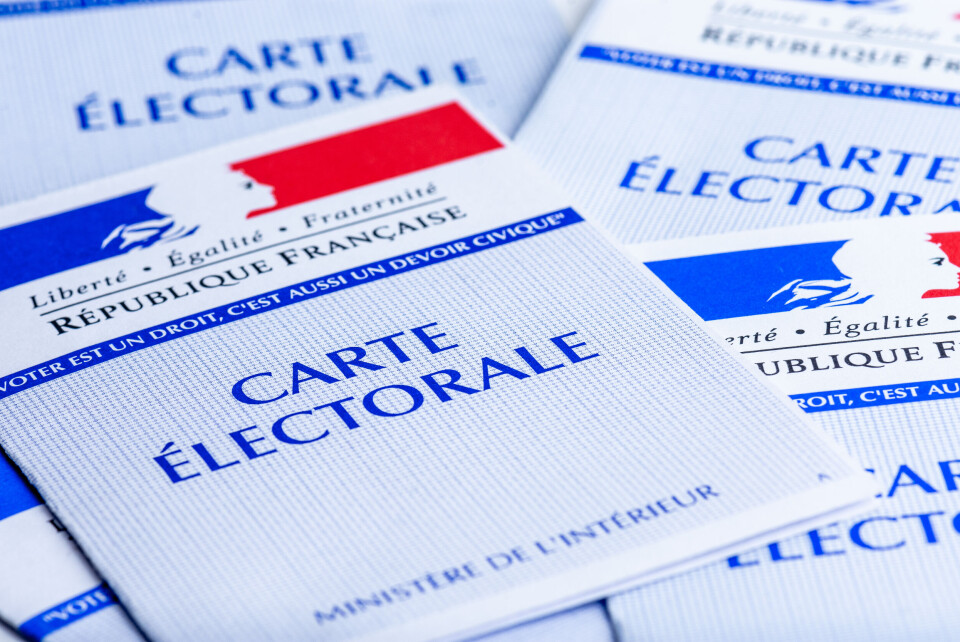-
La Voie Bleue: European Cycle Route of the Year is in France
700km bike path linking Luxembourg and Lyon has been crowned winner of the 2026 title
-
MAP: See how your location in France affects online food shop prices
New analysis shows how your shop compares on average
-
Further sightings of processionary caterpillars in France prompt action from local authorities
Caterpillars have arrived early after mild winter
Macron’s party leads as French citizens living abroad vote for MPs
MPs affiliated to the left and Jean-Luc Mélenchon were not far behind

French people living abroad and in French Polynesia went to the polls this weekend (June 4-5), to vote for the MPs who will represent them in Parliament in the first round of the legislative elections.
France has 11 overseas constituencies, created in 2010, allowing citizens living abroad to be represented on issues which affect them, rather than simply voting in their previous area of residence as, for example, happens with eligible Britons.
Candidates aligned with President Emmanuel Macron came out on top in most constituencies, with the exception of former prime minister Manuel Valls, who only gained 16% of the vote.
He was beaten by Nupes candidate Renaud Le Berre – belonging to the group of parties united under left-wing Jean-Luc Mélenchon’s leadership – and Stéphane Vojetta, the outgoing La République en Marche MP (député) who is now standing as an independent.
Read more: How can Mélenchon become French prime minister and how would it work?
Mr Valls, who was prime minister during François Hollande’s presidency, had been hoping to be elected to represent French people in Spain, Portugal, Monaco and Andorra.
He said: “Even if dissidence and division sowed confusion, I cannot ignore my score and the fact that my candidacy did not convince [people],” in a statement.
There are approximately 1.4 million French people registered to vote in overseas constituencies.
France’s overseas constituencies are:
-
First: Canada and the US
-
Second: Central America, the Caribbean and South America
-
Third: Northern Europe and Greenland
-
Fourth: The Benelux (Belgium, Luxembourg and the Netherlands)
-
Fifth: Andorra, Monaco, Portugal and Spain
-
Sixth: Liechtenstein and Switzerland
-
Seventh: Central and Eastern Europe
-
Eighth: Southern Europe, Israel, the Palestinian territories and Turkey
-
Ninth: The Maghreb, including Morocco, Tunisia, Libya and Algeria
-
Tenth: Central, Eastern and Southern Africa, and much of the Middle East
-
Eleventh: Belarus, Ukraine, Russia, Moldova, Oceania and most of Asia
Mr Mélenchon’s Nupes – a coalition standing for Nouvelle union populaire, écologique et sociale and including parties such as La France Insoumise – came first in two of these constituencies during yesterday’s first round vote, and took second place overall.
Candidates representing President Macron won in eight constituencies, with La République en Marche’s Roland Lescure emerging on top in the first overseas constituency, for example.
Economist Marc Ferracci, who is closely affiliated with the president, also won the first round in the sixth constituency with 36.5% of the vote.
In most constituencies, therefore, candidates representing the president will face off against Nupes candidates in the second round.
French people living abroad appear to have gone to the polls in greater numbers this year than they did in 2017, when the turnout was only 19.1%.
Across the whole of the French electorate, the abstention rate for the first round of the legislative elections is expected to be 52-3%, as compared to 51.3% in 2017.
In metropolitan France, the first round of the legislative elections will take place this Sunday (June 12), followed by the second round on June 19.
Read more: 11 questions on the legislative elections this month in France
President Macron’s affiliated parties may benefit from the fact that younger and less affluent French people living abroad are more likely to abstain as they would be more inclined to vote for Nupes or Rassemblement National, according to experts.
Frédéric Dabi from the polling firm Ifop told LCI yesterday that “there are hypotheses which give a relative majority” to President Macron, with less than 289 seats. According to these predictions, Nupes would gain between 170 and 205 seats, and Rassemblement National would win 20 to 50.
However, “a scenario in which Nupes gains an absolute majority has been excluded for now,” Mr Dabi added.
Related articles
What’s coming up? The week ahead in France
Elisabeth Borne must win at legislative elections to remain French PM
























